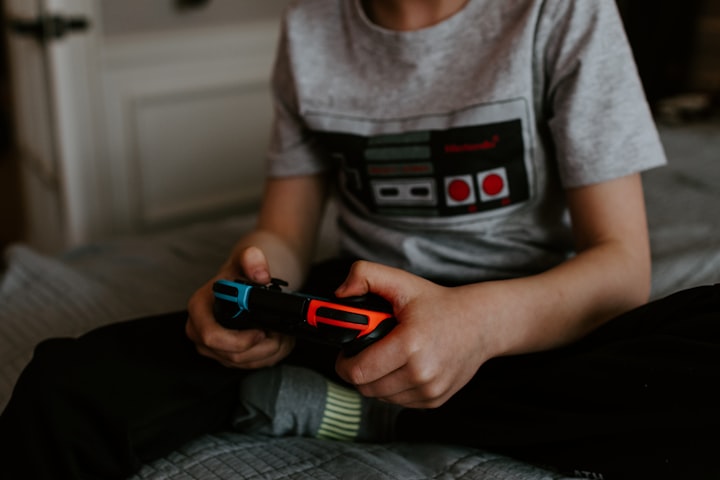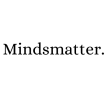These Video Games Can Actually Cure Your Anxiety, Here's How
Not only do they make mental illnesses visible and represent them in an accurate way, they can improve your mental health

There are certain things that society scapegoats to justify certain issues that are wrong with the world. Many decades ago rock music and heavy metal were blamed for making young people violent, then it was action movies that brainwashed teenagers.
Years passed and now video games became the target. Every time there is a mass shooting in schools, congressmen and politicians claim that it is all the fault of violent video games, and their proposal to fix things is to ban them.
The deteriorating mental health of the shooters is never discussed, as they grew up in abusive environments, possibly developing mental illnesses that were never diagnosed or treated. They prefer to believe that the fault is a few pixels on a screen.
Although this stigma is still around, it is becoming increasingly apparent how absurd it is to blame video games for hurting people's mental health. Every year new games appear that have not only proven to have benefits but also promote messages and visibility of mental illnesses.
Beyond breaking the stigma, these games seek that gamers understand and learn about the mind and its challenges.
Video games that want to help
If you are a casual gamer, you know that there is nothing better to relax and clear your mind for a while than playing a video game. Disconnect for a while from the world while completing missions, advancing levels, and progressing, your favorite games may be Call of Duty or FIFA, whatever are not good sources of stress relief.
We all know that video game developers and companies are not altruistic, they do not create these products to help us, it is a market like any other where the objective is to make money. However, in recent years several developers have taken the responsibility of integrating some aspects into their video games that give visibility to the importance of mental health, making them part of their mechanics and gameplay.
A very clear example is Alessandro Salvati's Anxiety Attacks, which he does not describe as a video game, but more as an interactive experience. The player walks through a forest, and as time progresses you may experience symptoms of an anxiety attack. It is not recommended for people with actual anxiety and depression problems, but for people who want to understand what it is like to live with these symptoms. There are no life bars, checkpoints, or a story, it is a very accurate simulator of a mental illness.
Other games have chosen to build their plots and mechanics around these problems, such as Sea of Solitude, a game where you play a woman who explores a partially flooded city, escaping from its inner demons. Along the way, you must take care of monsters, which are normal citizens who were converted by loneliness and isolation. The game has a clear message about connecting with the people around us.
The other example is Hellblade: Senua's Sacrifice, a fantasy game that follows the story of a Celtic warrior suffering from psychosis. Senua hears voices in her head and has hallucinations that will become essential elements of the gameplay, although at the time the character is not able to recognize these as a disease, she calls them a curse.
Night in the Woods may look very childish, but its messages about personality disorders, self-discovery, and PTSD can strike deep chords within you. Then we have the much less subtle Depression Quest, an interactive game where you literally have to experience everyday life from the perspective of a person with depression. The representation is so real that calling it fiction is blasphemous.
The benefits of video games on mental health
Although we gamers know how much video games can help relieve stress and clear the mind, the world needed proof. That is why researchers from the Oxford University studied a group of people who spend several hours a day gaming.
The experiment was very simple, a group of people was taken and a test was made where their emotional mood can be evidenced, after several hours of playing games the same test was applied again and the results were compared with those who did not play not one game. In the end, those who were immersed in the games for several hours registered a better state of mind than those who did not, and those who played the longer, showed greater improvement.
The results suggest that in general, video games are great regulators of emotions, methods to reduce stress, relaxation and can be used to treat anxiety.
Of course, we've all seen the videos of guys beating up their TVs after losing a match, and in that case, it's hard to believe their moods improved. Well, not all games have the same results and the exposure also varies between player and player. If you spend 16 hours in a row playing League of Legends, a game that has a reputation for having a particularly toxic and aggressive community, of course, you are going to want to make a hole in the monitor with your fist.
For this reason, the largest video game companies have implemented strict community policies, precisely to form healthier and more fraternal audiences.
On the other hand, if you play excessively, the effects it will have on your mental health will be anything but good. If you stop sleeping, eating right or living a healthy life by obsessing over being the best Fortnite player, don't expect your mood to improve.
Playing video games consistently has been shown to have a positive effect on reflexes, concentration, and problem-solving. With all this evidence, it is more than clear that when applied correctly, games can play a very important role in the recovery of patients with some mental illnesses.
Games that can help you with stress and anxiety
We have already seen how much video games can help in making mental illnesses more visible and their possible health benefits, but which ones can really help you? Although in general, the games that will help you relax the most are those that you like, some are made directly or indirectly to have a healthier experience. Some of these may be the ones for you:
Bound: is a platform game with captivating aesthetics. The story is about the emotions that children can experience during a divorce, and how the character who is a dancer uses those feelings to create beautiful things. The plot is inspiring.
Florence: is an interactive story inspired by the typical girl meets boy story. The plot is a relationship that ends and what it is like to live the separation and the ending of cycles. The best thing is that it is a mobile game.
Stardew Valley: it's like a much more relaxed and comforting Minecraft. You are an amateur farmer who inherited your grandfather's farm and with few tools and money, you must keep it standing. What differentiates this game from other similar ones is that the consequences are not terrible and the rewards are fulfilling. Focusing on small tasks and seeing your progress is encouraging and promotes consistency and commitment.
Hollow Knight: it is a 2D game that although it seems a bit gloomy, its atmosphere is relaxing and immersive. The aesthetics together with the soundtrack, create a self-improvement experience that demonstrates the importance of progressing step by step.
Some of these games may be a bit more challenging than others, but they were all made to offer a rewarding experience more than anything else. There are no pro-players in any of these games, and if you use them wisely, they can be an escape from the fast-paced everyday life.
____________________________________________________
We made something a little great! The Anxiety Workbook, get yours by clicking here.
____________________________________________________
Want To Support Us?
You can like this story, tell a friend about it, buy us a coffee on Ko-fi, check us out on Medium, or all of the above! It all helps!
____________________________________________________
Want Even More?
Grab the latest updates from Mindsmatter. Exclusive stories, mental health resources, and more!
About the Creator
Mindsmatter.
Mindsmatter is written by Bola Kwame, Jack Graves and Emma Buryd.
De-stigmatizing mental illness one day at a time.
Our socials: https://linktr.ee/Mindsmatter






Comments
There are no comments for this story
Be the first to respond and start the conversation.